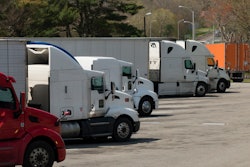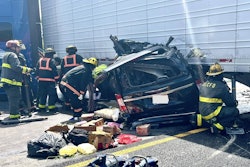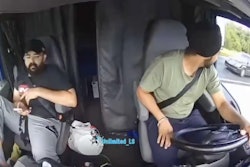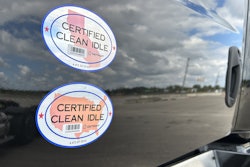After a deadly crash caused Florida authorities to "go after" California for issuing a CDL to an "illegal alien," the Owner-Operator Independent Driver Association on Tuesday called on DOT to shut down non-domiciled CDL issuance entirely.
Citing "ongoing safety concerns," OOIDA "strongly" encouraged DOT Secretary Sean Duffy to "immediately suspend states’ authority to issue non-domiciled commercial driver’s licenses for interstate commerce."
OOIDA's letter came just one day after the Department of Homeland Security accused "Gavin Newsom’s California Department of Motor Vehicles" of issuing "an illegal alien" a CDL. "This state of governance is asinine,” said Assistant Secretary Tricia McLaughlin in the DHS statement.
The statement from DHS further alleged the driver in the Florida turnpike crash that killed three on August 12, Harjinder Singh, obtained a CDL in California "despite having no legal right to be in the United States." In related Overdrive reporting, a California DMV official said Singh was issued a non-domiciled CDL last year only after confirming his legal presence in the country in the "federal Systematic Alien Verification for Entitlements (SAVE) system and the federal employment authorization process."

OOIDA urged DOT Secretary Duffy to undertake and keep a non-domiciled CDL issuance suspension in place, "at a minimum," until DOT "has completed its review of non-domiciled CDL issuance" that President Donald Trump included in his April executive order, "Enforcing Commonsense Rules of the Road for America’s Truck Drivers."
Overdrive conducted its own review of non-domiciled CDL practices in the country and found evidence of 60,000 active non-domiciled licenses in 32 states, though the actual count is surely higher given data wasn't provided by big states like New York, New Jersey, Virginia and California. Those states, among others that didn't provide numbers, do issue non-domiciled CDLs; if they issue the credential at the rate of the responding 32 states, the total count could easily reach 90,000 active non-domiciled CDLs.
[Related: Download the full report: The rise of the non-domiciled CDL in the United States]
In the course of Overdrive's reporting, California's DMV said it doesn't track the citizenship status of its CDL applicants, and insisted, contrary to DHS's assertions, that it complied with all federal laws. Yet the state also said it will not enforce Trump's English language mandate for truck drivers, which became federal guidance in June. California's CDL licensing practices have come into question recently as a suspected cargo thief was arrested in June with a California CDL that listed his first name as "No Name Given."
OOIDA's letter went on to suggest other points of emphasis for DOT: "As USDOT continues its nationwide audit into state practices involving non-domiciled CDLs," the association wrote, "we urge you to consider how these drivers are being recruited, compensated, and treated, as well as the safety records of motor carriers utilizing these CDL holders."
At the conclusion of the DOT's audit of non-domiciled CDLs, OOIDA told DOT it would like to see a "thorough review of a non-domiciled applicant’s driving history before they are eligible to receive their license," including 10 years of driving history in "all types of motor vehicles and all jurisdictions. This would help ensure that non-domiciled applicants face the same level of scrutiny as U.S.-domiciled applicants, who are currently subject to this 10-year review."
OOIDA's letter goes on to say that motor carriers themselves need more scrutiny, not just drivers.
DOT "should take steps to better ensure motor carriers are complying with safety regulations that keep drivers with an unsafe history off the road," the letter said, citing 49 CFR 391.21. That regulation "requires drivers to provide motor carriers with information related to their driving history, including a list of all motor vehicle accidents in which they were involved and violations of motor vehicles laws they were issued over the previous 3 years."
Further, DOT should "improve safety by enhancing oversight of new carrier applicants prior to granting operating authority," OOIDA said. "Currently, bad actors and unqualified drivers can quickly obtain operating authority because the barriers to entry are simply too low." The association points to the New Entrant Safety Audit, which it asserted is "now conducted almost entirely online, making it more a reflection of an applicant’s ability to complete administrative paperwork rather than understanding how to operate a trucking business at the safest level."
As recently as June of last year, the Federal Motor Carrier Safety Administration had included on its regulatory calendar a request for information around New Entrant knowledge testing. It was then forecast to be published in June of this year. The Advance Notice of Proposed Rulemaking was set to "consider methods for ensuring a new applicant carrier is knowledgeable about the applicable safety requirements before being granted New Entrant authority," according to Overdrive reporting at this link. "The agency is considering whether to implement a proficiency exam as part of its revised New Entrant Safety Assurance Process, as well as other alternatives."
[Related: DOT calls out 'despicable' state failures on ELP, CDL rules following deadly crash]











